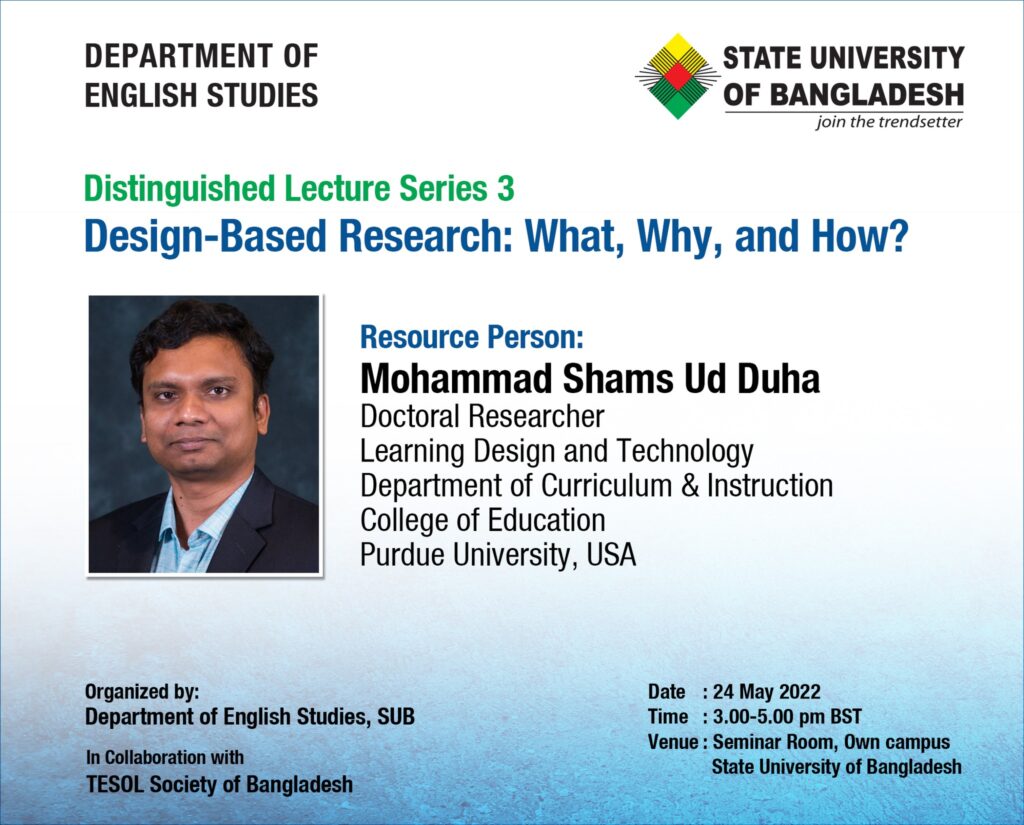TESOL Society of Bangladesh, in collaboration with the Department of English Studies (DES) at State University of Bangladesh (SUB), organized the third session of its “Distinguished Lecture Series.” The workshop, titled “Design-Based Research: What, Why, and How?”, took place on May 24, 2022, at SUB’s campus in Dhanmondi. Launched in October 2021 to commemorate the university’s 20th anniversary, the series aims to disseminate knowledge in the fields of English Language, Literature, and Cultural Studies.
The workshop was facilitated by Mohammad Shams Ud Duha, a doctoral researcher in Learning Design and Technology at Purdue University, USA. Participants explored the various steps of Design-Based Research (DBR) and learned how faculty and student researchers can utilize this method for their own research projects. The session also showcased the development of the Purdue Repository for Online Teaching and Learning (PoRTAL) through DBR. The interactive workshop engaged participants in planning their own research projects using DBR principles.
The event began with a welcome speech by Touhida Easmin Humaira, Head of the Department of English Studies (DES). She highlighted the objectives of the Distinguished Lecture Series, followed by Professor Dr. Nawzia Yasmin, Pro-Vice-Chancellor of State University of Bangladesh (SUB), who congratulated the Department of English Studies for organizing the series and emphasized the importance of research knowledge for educators.
Prof. Dr. Sayeedur Rahman, President of TESOL Society of Bangladesh and Advisor to the Department of English Studies (DES), introduced Mohammad Shams Ud Duha as the resource person and discussed the significance of DBR in an educational context. The workshop delivered by Mohammad Shams Ud Duha introduced participants to Design-Based Research, its distinctions from traditional research, and its role in implementing theories and interventions in real-world scenarios.
Participants included faculty members and graduate students from English and various other departments. The session fostered lively discussions, group work activities, and thought-provoking questions from the participants.

